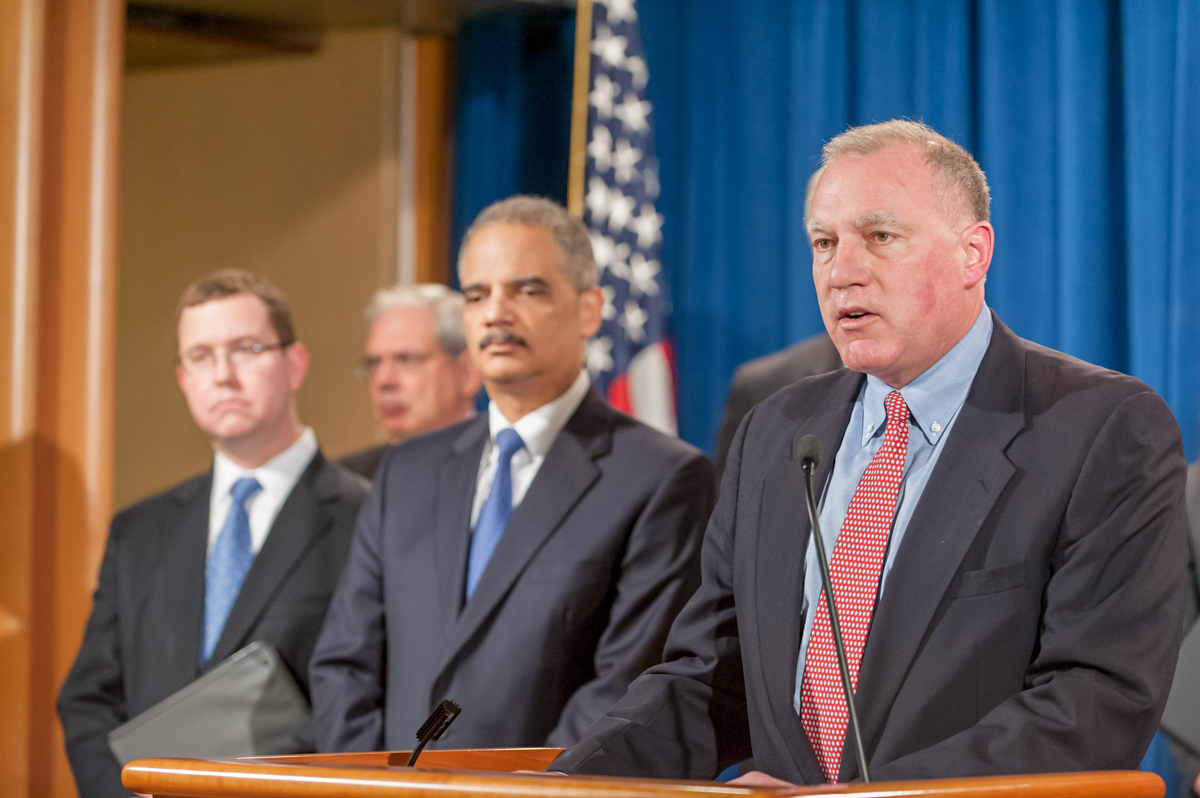
Wikimedia Commons
The latest scuffle between Connecticut and President Donald Trump’s administration looks set to play out in federal court.
The states has joined 16 others in a lawsuit to prevent the Trump administration from asking respondents about their citizenship status on the 2020 United States census. Connecticut Attorney General George Jepsen announced that the state had joined the lawsuit on April 3.
Jepsen emphasized that Connecticut has a substantial immigrant population, particularly from Latin America, and many of them are not U.S. citizens. He warned that an undercount of the state’s total population could undermine the state’s legitimate political representation in Congress and federal aid.
“We believe … that having a citizen question results in an undercount of the population because people are intimidated that that information might be used against them,” Jepsen said in a Friday interview with the News. “And the Constitution is very clear that the purpose of the census isn’t to count citizens, it is to count residents, people.”
The plaintiffs argue that the Constitution mandates that the census — and accordingly, congressional delegation size and federal funding proportions, which are determined from census results — be based on total state population, not just on registered citizens.
In an April 3 press release, the Connecticut Attorney General’s office pointed out that in 2009, eight former directors of the Census Bureau, dating back to 1979, agreed that the addition of a question about citizenship status would reduce participation. And in 1980, the Census Bureau rejected a similar question on the grounds that it would “jeopardize the overall accuracy of the population count,” according to the press release.
But the U.S. Department of Commerce on March 26 announced the reinstatement of a citizenship question on the 2020 U.S. census. The department said that the question would be the same as the one asked on the yearly American Community Survey: “Is this person a citizen of the United States?”
The Commerce Department’s move follows a Dec. 12, 2017, request by the federal justice department requesting the Census Bureau to reinstate a citizenship question on the decennial survey to support its enforcement of the Voting Rights Act.
Though the U.S. census has not asked about citizenship status since 1950, the Department of Commerce, which is headed by Secretary Wilbur Ross ’59, emphasized that it regularly included the question in censuses before that year, dating back to 1820. In a memorandum sent on March 26, Ross emphasized the historical precedent and the usefulness of citizenship data in the enforcement of the Voting Rights Act, calling the inclusion of the question necessary for the fulfillment of the Census Bureau’s duty to provide “complete and accurate” information.
“I find that the need for accurate citizenship data and the limited burden that the reinstatement of the citizenship question would impose outweigh fears about a potentially lower response rate,” Ross said in the memo. “The Department of Commerce is not able to determine definitively how inclusion of a citizenship question on the decennial census will impact responsiveness.”
On Feb. 12, Jepsen, along with other state attorneys general, sent a letter to Ross, opposing the Department of Justice’s request to add a question on citizenship to the census.
New York Attorney General Eric Schneiderman is leading the lawsuit, which was filed in the U.S. District Court for the Southern District of New York on April 3. The complaint seeks declaratory and injunctive relief from the court and names the United States Department of Commerce, the Bureau of the Census and both organizations’ directors as defendants.
Alicia Kinsman, managing attorney and director of immigration legal services at the Connecticut Institute for Refugees and Immigrants, said that while the effects of the citizenship question remain to be seen, her major concern is the impact may have on the immigrant community.
“I understand lots of arguments surrounding it, … but I don’t have a strong feeling for that matter, because frankly I’m focusing on the calls that I get,” Kinsman said. “Everything that’s in the news, everything that they are hearing, this is just another thing to throw into that mix. Even though it may not mean anything, it doesn’t matter. When you’re living in this climate of fear, and you have this ever-present, pervasive fear that anything could trigger your removal from the U.S. and you being sent back to a place where you ran from, anything is enough to make that [fear] really burst.”
In addition to the reasons stated in the lawsuit with regards to the accuracy of the census and immigrant turnout, the case comes “against the backdrop of Trump’s clear antipathy toward immigrants of all stripes,” Jepsen told the News.
He connected the census issue to Trump’s broader record with regards to immigrants, citing the president’s questioning of former President Barack Obama’s birth place, his characterization of Mexican immigrants at his campaign launch, his criticism of a gold-star mother and his comments casting doubt on the fairness and impartiality of an American-born judge of Mexican descent.
“It is hard not to see [this] in the context of a long line of this animus for which people who come from other countries,” he said.
The U.S. census was first conducted in 1790.
Keshav Raghavan | keshav.raghavan@yale.edu







